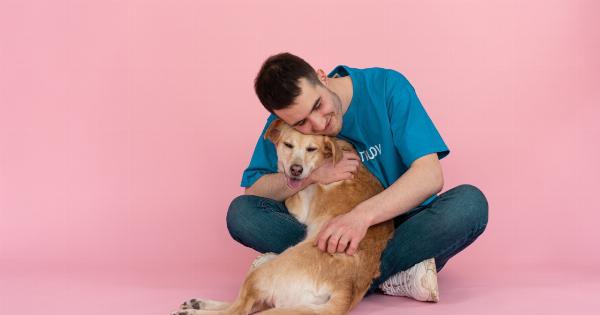In today’s society, there is often a focus on adopting puppies or younger dogs when it comes to adding a furry friend to the family. However, older dogs can bring a unique and rewarding experience to their new owners.
Adopting an older dog gives them a second chance at life and opens up a world of love and joy that might otherwise be missed. In this article, we will explore the benefits of adopting an older dog, tips for a successful transition, and why giving an older dog a new home can truly be a new lease on life.
The Benefits of Adopting an Older Dog
When considering adopting a dog, one of the first decisions to make is whether to choose a puppy or an older dog.
While puppies have their charm and appeal, older dogs have unique advantages that can make them the perfect companion for many individuals or families.
1. Calm and Established Temperament
One of the most significant benefits of adopting an older dog is their already-established temperament. Unlike puppies, whose personalities are still developing and can change as they grow, older dogs have a known temperament.
Shelters and rescue organizations can provide valuable information about a dog’s behavior and temperament, allowing potential adopters to make an informed choice based on their specific needs and lifestyle.
2. Skipped the Puppy Phase
The puppy phase can be challenging and demanding. Puppies require constant supervision, potty training, and may exhibit destructive behaviors during teething.
By adopting an older dog, you can skip this phase and enjoy the rewards of having a well-behaved and house-trained companion right from the start. This can be especially beneficial for individuals or families with busy schedules who may not have the time or energy to invest in training and guiding a young puppy.
3. Less Demanding on Exercise
Younger dogs and puppies often have higher energy levels and require a significant amount of exercise to keep them happy and healthy. Older dogs, on the other hand, tend to be more mellow and less demanding when it comes to physical activity.
While regular exercise is still important, it is usually at a moderate level, making it more manageable for individuals who are not as physically active or have limited mobility.
4. Immediate Companionship
Adopting an older dog means you can quickly form a bond and enjoy their companionship right away. Unlike puppies who require time to grow and develop, older dogs are ready to shower their love and loyalty upon their new owners from day one.
The instant connection can be incredibly fulfilling, especially for those seeking a constant companion or emotional support.
5. Gratitude and Appreciation
When adopting an older dog, there is a sense of fulfillment that comes from giving them a second chance at a happy life.
Older dogs often end up in shelters due to unforeseen circumstances such as a change in their owners’ circumstances or health issues. By providing a loving home, adopters can experience the gratitude and appreciation that older dogs have for their new lease on life.
Tips for a Successful Transition
Transitioning an older dog to a new home requires patience, understanding, and a few key strategies to help them adjust successfully. Here are some tips for making the transition as smooth as possible:.
1. Create a Safe Space
Before bringing your new furry friend home, designate a specific area that will serve as their safe space. This space should contain their bed, toys, and food and water bowls.
Introduce them to this space immediately upon arriving home to provide a sense of security and familiarity.
2. Stick to a Routine
Establishing a daily routine can help older dogs feel at ease in their new environment. Dogs thrive on consistency, so try to feed them, take them for walks, and provide exercise at the same times each day.
This predictability helps them feel secure and reduces anxiety.
3. Gradual Introductions
If you have other pets at home, introduce them to the new addition gradually. Allow for supervised interactions while keeping a close eye on their body language. Giving them time to adjust to one another will help prevent unnecessary stress or conflicts.
4. Provide Mental Stimulation
Older dogs may not require as much physical exercise as their younger counterparts, but their mental stimulation is still crucial.
Engage in interactive play sessions, provide puzzle toys, or enroll them in obedience or trick training classes to keep their minds sharp and active.
5. Medical Check-up
After adopting an older dog, schedule a visit to the veterinarian for a thorough check-up. This will help identify any underlying health conditions and ensure they receive the appropriate vaccinations and treatments.
Regular veterinary care is essential to their overall well-being and can help catch any potential issues early on.
A New Lease on Life
When it comes to adopting a dog, age should never be a deterrent. Older dogs have so much love and companionship to offer their new owners. By opening your heart and home to an older dog, you can provide them with a fresh start and a new lease on life.
The benefits are immeasurable, and the bond that forms can be incredibly rewarding.





























